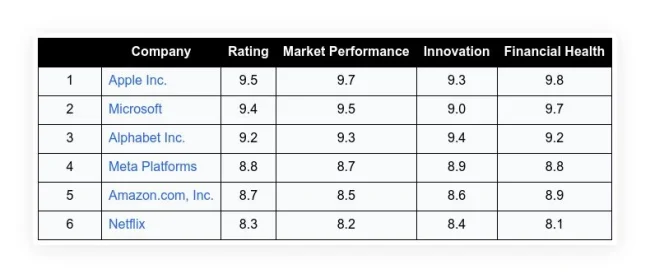People with ADHD, or attention-deficit/hyperactivity disorder, can face a number of challenges when it comes to finances, which can include impulse spending. The first, and arguably most significant, is that people with ADHD tend to have lower levels of a neurotransmitter called dopamine. Dopamine acts as a reward system in the brain, helping people experience pleasure and motivation. Those with low dopamine levels often need higher levels of stimulation and may seek it out in unhealthy ways.
As a result, folks with ADHD may find themselves seeking pleasure via instant gratification and impulse spending. They may spend more — and more often — on unintended purchases, from food to consumer goods to activities. They’re more likely to grab a treat at the checkout, buy more than they intended, or make purchases they later regret. What’s more, issues with emotional regulation can lead them to spend even more when they’re feeling down.
On top of this tendency toward impulse buying, people with ADHD often find budgeting and financial planning difficult. That’s because the condition causes executive function difficulties, making it harder to make decisions or complex future plans. The forgetfulness and distraction of ADHD can also make it harder for sufferers to remember what they’ve already purchased. That means they might often buy doubles or triples of a product that they already have at home.
All that said, people with ADHD are often very bright and are strong multi-taskers and creative thinkers. With the right techniques and tools at their disposal, they’re perfectly capable of curbing impulse spending and meeting their financial goals. In this article, you’ll find some of the best tips and tricks for building better financial control with ADHD. Read on to learn how to hack your ADHD or help a loved one who might be struggling.
Table of Contents
Toggle1. Understand the Symptoms
The first step in managing any aspect of ADHD is to get a proper clinical diagnosis and, if necessary, treatment. That could include everything from online education and coaching to therapy sessions and even medication. Several other common mental and even physical health conditions can have symptoms that mimic or look like ADHD. It’s important to understand exactly what it is you’re dealing with and get proper support, versus tackling it on your own.
One major component of tackling finances with ADHD is simply having an understanding of how the ADHD brain works. In short, you may crave more dopamine than other people, leading you to spend unnecessarily to get that hit. Simply knowing that about yourself, as a baseline, can be a helpful way to curb spending. When you feel that impulse to buy, you can learn to seek out a healthier way — like exercise or a passion project — to get the stimulation you’re craving.
According to Dr. Anne Bailey, Psychologist at Springboard Clinic, getting a proper diagnosis and the right treatment is crucial for managing ADHD finances. However, that treatment doesn’t necessarily have to be all about medication. “Increasing your awareness of your symptoms,” says Bailey, “how they are impacting your life on a daily basis, and finding customized strategies that work for you is really best achieved by working with an ADHD coach.”
2. Make Financial Planning Fun
If you have ADHD, chances are you’re absolutely incredible at ideation and brainstorming. You love the planning stage of anything — right up until you have to figure out the details or follow through. As a result, you’ve probably started a million different budget spreadsheets and made them shiny, beautiful, and color-coded. You might’ve also downloaded a finance app or two and spent hours allocating every last dollar of your income, at least in theory.
The problem arises when it’s time to do the boring, mundane tasks or build a routine and remember to stick to your new habits. You might find it impossible to keep up with daily check-ins, remember what you spent, or actually follow the plan you made. Even if motivation is high, object impermanence can take over the second you leave the house. Even with the best intentions, you might just forget your goals whenever they’re not staring you in the face.
To make financial planning work for you, try to think of it as gamifying your savings, rather than tracking or limiting your spending. Think about your next big vacation or an ongoing passion project (one you’ve stuck to) and how much you’d need to make it happen. Use an app, or better yet, draw a big, colorful tracker on a whiteboard and update it each time you set money aside. By focusing on saving, you turn each act of not spending into the dopamine hit you crave.
3. Use Simple Systems
Don’t blame yourself if trying to do the same thing every day is your downfall; ADHD-ers often struggle to build routines. It can be incredibly hard to make yourself do the same tasks every day or to make even old habits feel automatic. That’s why conventional planning tools like budget apps might not work for ADHD-ers who forget to open them and don’t notice notifications. One workaround is to build failsafe, automatic systems that trigger you to stop spending.
For example, you could try setting a budget and then putting all your “fun” money on a single debit card or a prepaid card. In other words, you might put $200 on the card for one month’s movies, snacks, impulse buys, and other entertainment. Once you’ve used up your balance, you’ll know you can’t spend anymore, without having to check or rely on self control. You also won’t need to manually track your spending, because it’s all in your transaction history.
Some people use more or less the same technique, except using envelopes full of cash instead of debit cards. Others keep the tags on all their purchases for a certain number of days, in case they realize they need to return something. Another hack is to do all your shopping online. That way, you can’t grab impulse purchases at the store. Some folks curb online spending by deleting stored credit card information or keeping items in their carts for a day or two before buying.
4. Pay the ADHD Tax Upfront
Aside from the impulse spending, ADHD is probably already costing you all kinds of extra money. Think of that autobilled streaming service you always forget to watch or that gym membership that sits rotting while you’re spinning or downward-dogging at boutique studios. This is also why using paid apps to budget isn’t the best idea for many ADHD-ers. Think of how much money you’re spending monthly on services you’ve only really used a handful of times.
Then there are the more insidious costs — the ones that come up because of poor planning or executive function issues. The groceries that rot in your fridge before you cook them and the cost of ordering takeout instead. The penalties and interest you get charged because you’re late on your credit card payments. The job opportunity you missed out on because poor car maintenance caused a breakdown or your tank was empty the morning of the interview.
Combine it all, and the costs of having ADHD — aka the ADHD tax — can really add up. However, spending a little more upfront can save you big bucks later. When you gas up your car, fill it all the way up, instead of just putting $10 or $20 in it. At the supermarket, buy pre-cut produce and ready-to-eat foods, in case you don’t have the bandwidth to cook. Schedule brake checks and teeth cleanings before something’s off, and put reminders in your calendar. Set big bills like utilities and credit cards to autopay and cancel any extra monthly subscriptions.
5. Get Help, But Not Too Much
As tempting as it can be, try your best not to offload all your financial tasks onto another person in your life. ADHD-related issues, including financial problems, can cause a lot of conflict in relationships and hurt your confidence or lead to codependence. That’s not to say your partner can’t handle the shared monthly budget or bills, if they enjoy it and it’s their strong suit. Just don’t put them in the impossible role of managing your spending when you can’t control it.
Being a good partner means taking responsibility for your own finances and any major purchases that could impact your household. Always discuss big ticket items or luxuries in advance, and don’t go forward with anything until you’re on the same page. If you really can’t curb your impulse spending as an ADHD person, set up safeguards to protect your partner. Don’t let them give you access to their personal funds and consider avoiding holding any shared accounts.
The bottom line here is that your spending should never impact your loved ones — their vacations, their opportunities, their savings goals. However, it’s also important to consider the emotional cost of letting your spending get too far out of control. Instead of leaning too much on your closest loved ones, consider finding an accountability buddy. Shop online or in-store with a trusted friend present: someone who will tell you when it’s time to put down the credit card.
If You Can Hack It
While it’s important not to minimize the serious problems ADHD can cause, there’s a reason some people call it a superpower. Many ADHD-ers thrive under pressure, are fantastic problem-solvers, and can be invaluable in a crisis. It might take some outside help, coaching, tools, troubleshooting, and false starts to learn to budget with ADHD, but avoiding impulse spending is a great start. Think of these expenses as an investment in a future you — one that could see exponential growth.
















